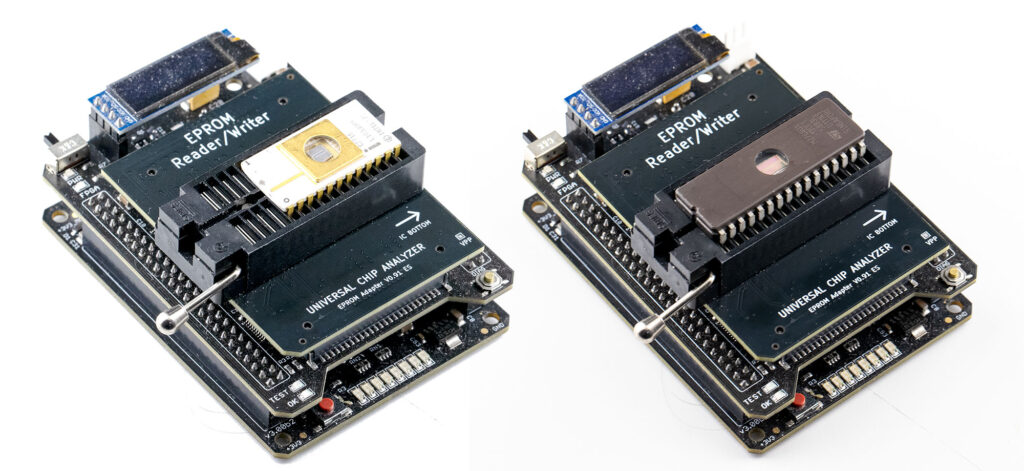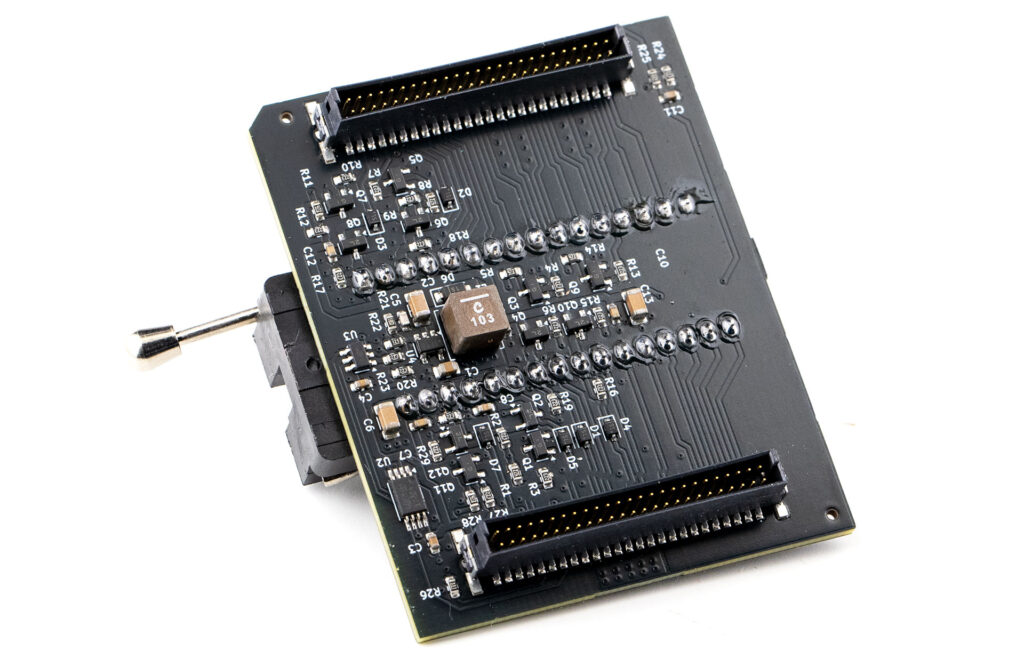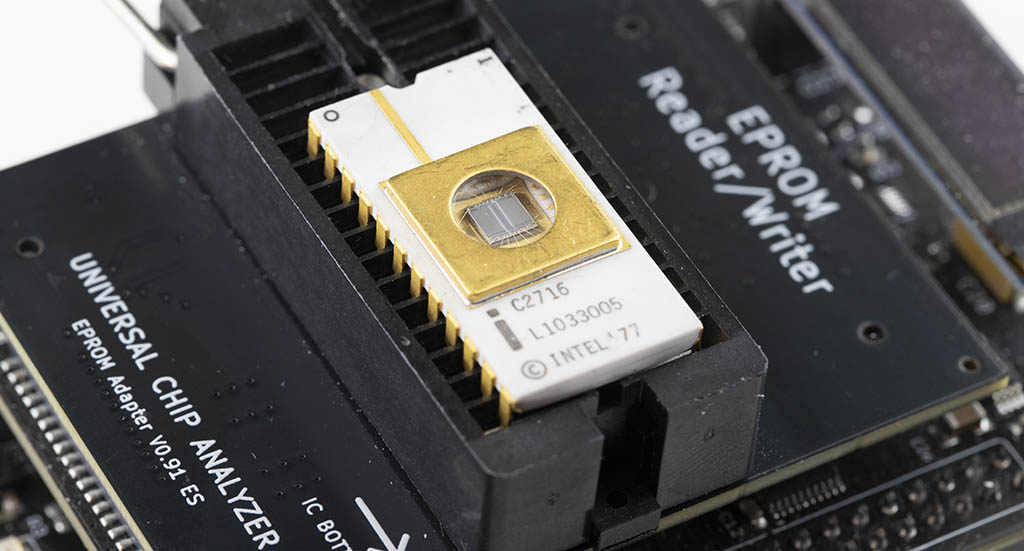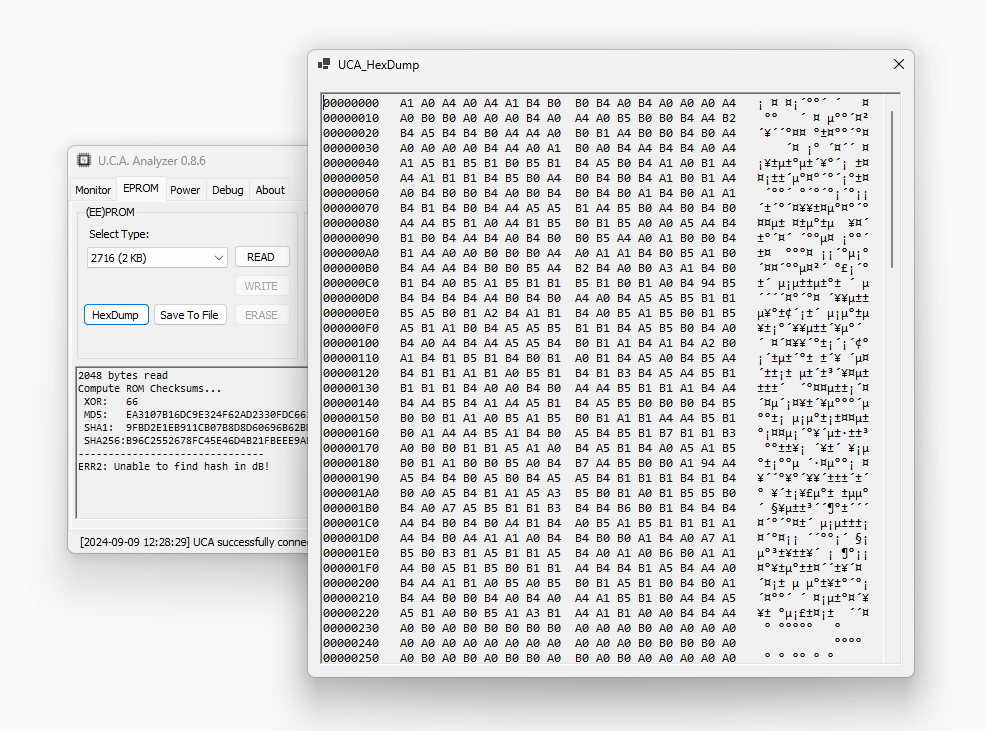Preserving the content of ROM, EPROM, and EEPROM is crucial for maintaining and restoring vintage electronic devices like retro-computers. These memories hold critical software, firmware, or microcode to ensure device’s functionality. Over time, the data stored in these chips can degrade due to age or environmental factors like lightning condition or humidity, leading to the whole device to fail. Beyond functionality, the preservation of this data holds significant historical value. The software and firmware embedded in these chips are often unique, reflecting the technological knowledge and practices of their time. Safeguarding their data allow to maintain the historical authenticity of these devices and enable accurate emulation on modern systems.
To solve these problems, let’s introduce the EEPROM Adapter for the Universal Chip Analyzer! EEPROM reader/writer are often expensive, unreliable or complex to use with many jumpers or DIP switches. Thanks to the UCA modularity, a single adapter can support the vast majority of standard 8-bit read-only memory, including early ROM, EPROM, EEPROM, Flash, and more! As of today, it has been tested successfully in read mode with EPROM ranging from 16 Kbits (2716) to 8 Mbits (27C801) including EEPROM (28Cxxxx) and Flash (28Fxxxx & 29C/Fxxxx). The integrated voltage regulator of the UCA also allow to read modern 3.3V-only Flash chips like 29EExxxx series. 28 and 32-pin PLCCs can also be supported using cheap and widely available Socket adapters.
 At this point, you might be wondering: what about writing? While reading data from these chips is relatively straightforward – simply a matter of toggling a 5V power line between the appropriate pins – writing is much more complex. Writing to (EE)PROMs requires generating and switching high voltages (ranging from 9V to 25V) across one or more “Write” pins. To address this, the UCA EEPROM adapter includes a digitally programmable DC-DC boost converter and a set of transistors to manage the high voltage switching to the necessary pins. Although the programmable converter and voltage switching have been successfully tested, the software for writing still needs to be developed. The ultimate goal is to create a jumper-free adapter capable of reading and writing to common (EE)PROMs without complicated configurations.
At this point, you might be wondering: what about writing? While reading data from these chips is relatively straightforward – simply a matter of toggling a 5V power line between the appropriate pins – writing is much more complex. Writing to (EE)PROMs requires generating and switching high voltages (ranging from 9V to 25V) across one or more “Write” pins. To address this, the UCA EEPROM adapter includes a digitally programmable DC-DC boost converter and a set of transistors to manage the high voltage switching to the necessary pins. Although the programmable converter and voltage switching have been successfully tested, the software for writing still needs to be developed. The ultimate goal is to create a jumper-free adapter capable of reading and writing to common (EE)PROMs without complicated configurations.
 Another news is planned tomorrow to reveal some more details about the software behind the UCA EPROM reader.
Another news is planned tomorrow to reveal some more details about the software behind the UCA EPROM reader.


